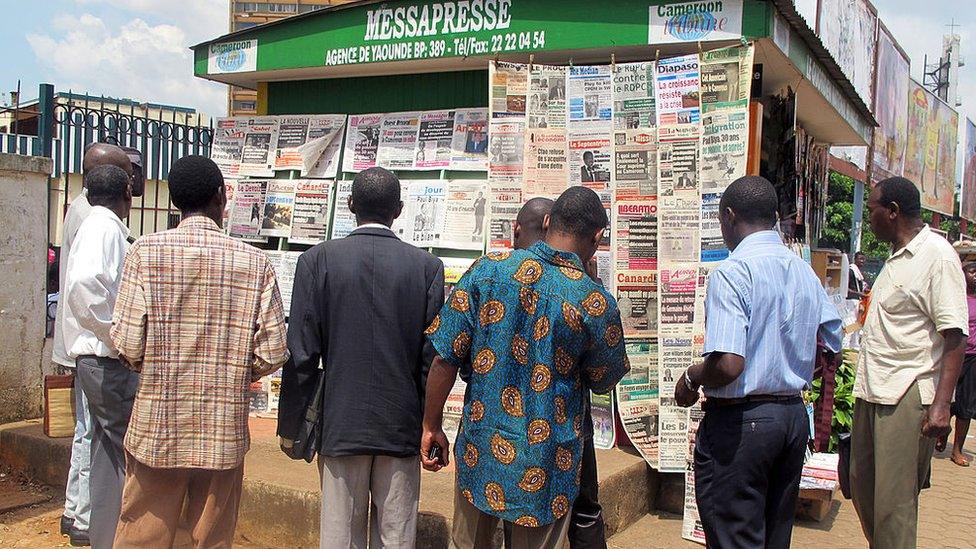Paul Biya: Cameroon's 'absentee president'
- Published
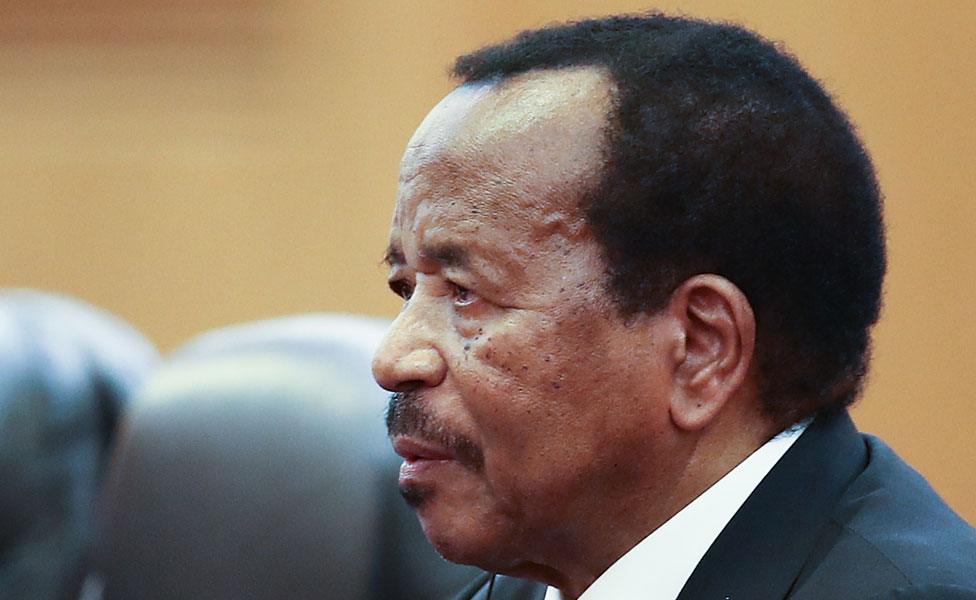
Cameroon's President Paul Biya has been in power for 35 years but is seeking another seven-year term. His longevity in office is a talking point at home, while the amount of time he spends out of the country has stirred international comment - as Paul Melly, an associate fellow of Chatham House, explains.
Criticised by some for a supposedly "hands-off" style of rule, Cameroon's President Paul Biya in March held a cabinet meeting for the first time in more than two years.
Mr Biya has been in power since 1982, making him one of Africa's longest serving leaders. Under his rule, Cameroon has survived an economic crisis and moved from being a one-party state to multi-party politics.
But it has also been marked by endemic corruption and reversal of democratic gains, leading to the abolition of term limits in 2008, which allowed the octogenarian to run for re-election in 2011.
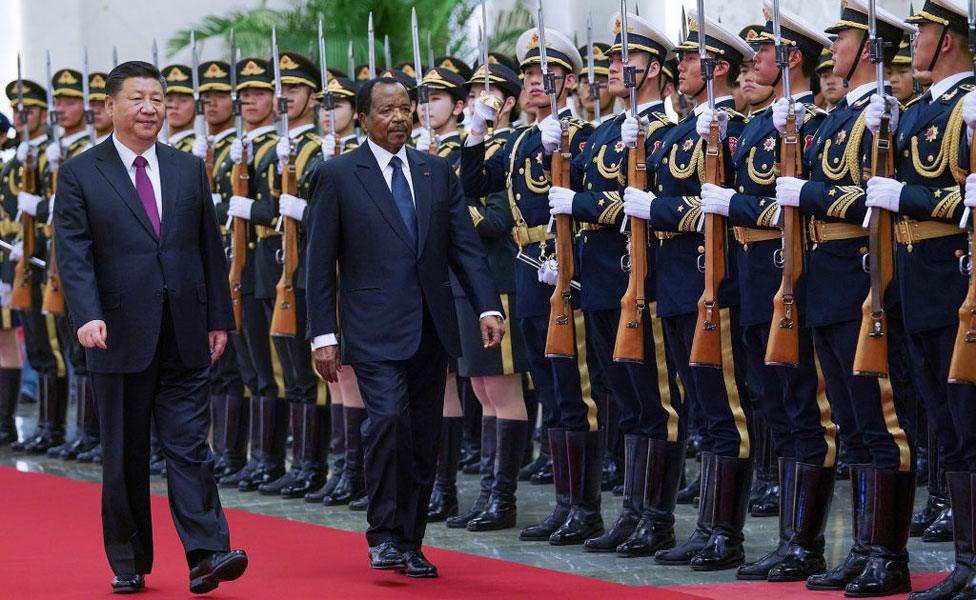
President Biya has been in China this week
Today's Africa is changing. The era of decades-old presidencies is slipping away. Satellite TV and the internet tell a growing urban audience about democratic changes of power in other sub-Saharan countries.
Some 60% of Cameroonians are under 25 and so were not even born when President Biya first came to power. There is massive demand for jobs and viable livelihoods.
The opposition Social Democratic Front has now recognised these generational realities. Earlier this year, the party's leader, John Fru Ndi, 76, stepped aside to make way for a new presidential candidate, 49-year-old businessman and former pilot Joshua Osih.
Swiss hotel
Mr Biya evidently thinks he still has something to give to Cameroon, even though his repeated absences from the country have riled critics.
His foreign travels have been the subject of an online spat between the state-owned Cameroon Tribune newspaper and the Organised Crime and Corruption Reporting Project (OCCRP), which calculated the amount of time the president spent abroad using reports from the daily newspaper.
It also alleges that he spent a third of the year abroad in 2006 and 2009. The Intercontinental Hotel in Geneva is said to be his favourite destination.
The state-owned Cameroon Tribune called their investigation "a clear electoral propaganda".
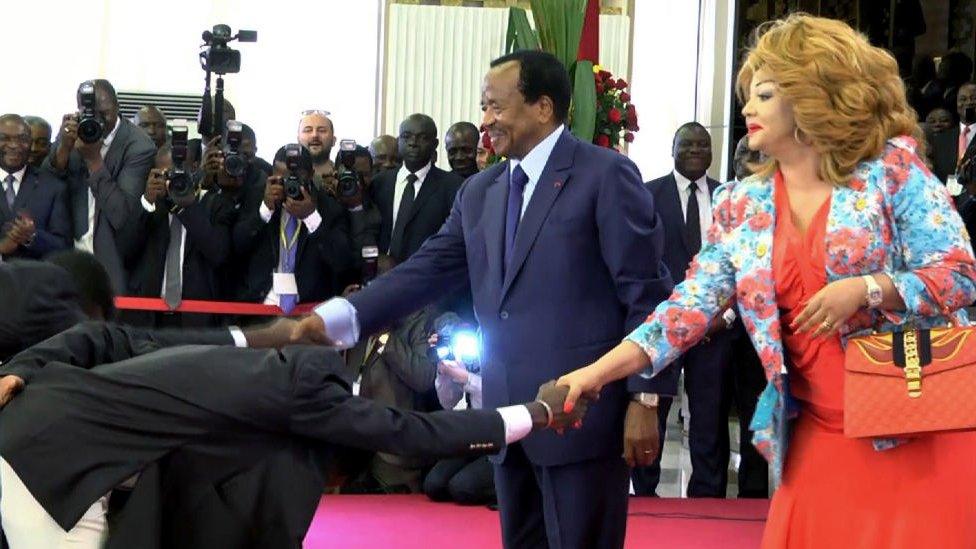
Cameroon football players bow before President Biya and his wife Chantal to mimic an obsequious greeting
Back home, President Biya adopts a low-key style, staying out of the limelight and sometimes retreating to his home village.
He entrusts the day-to-day running of the government to the Prime Minister, Philemon Yang, who holds monthly gatherings of a "cabinet council".
The prime minister is accorded wide latitude to manage the work of his ministerial team, while the head of state meets senior figures in private at the presidential palace in the capital, Yaoundé.

Read more about Cameroon:

President Biya's hands-off approach has led critics to talk of an "absent president".
However, this relationship at least partly reflects Cameroon's unusual dual heritage of both British and French colonial rule. President Biya, like his predecessor Ahmadou Ahidjo, is from the Francophone regions, while the premier is always an Anglophone.
The president has to be seen to leave the head of government to get on with the job, says one non-partisan Cameroonian analyst.
So when President Biya does summon ministers to a rare formal cabinet gathering, it is usually for a special reason.
The most recent one was the official first meeting of a new ministerial team after a reshuffle earlier in the month. It is similar to the last cabinet meeting, in 2015, which had come soon after the previous government revamp.
Language matters
For more than a year, Cameroon's Anglophone regions in the North-West and South-West have been mired in crisis.
This started as a protest by lawyers and teachers demanding better provision for the use of English.
Cameroon's English-speaking region protests explained
But tensions rose, leading to confrontation between the security forces, a 93-day blackout of internet services across Anglophone Cameroon, and separatist militants fighting for an independent "Ambazonia", with a rising death toll on both sides.
The government took steps to address the language issues, but the situation still looks dangerous. Both the UK and France have discreetly pressed for dialogue.
President Biya responded with a cabinet reshuffle on 2 March, signalling a carrot and stick approach: firmness on security and law and order was balanced with the creation of a ministry for decentralisation, holding out the promise of greater local control over development and public services.
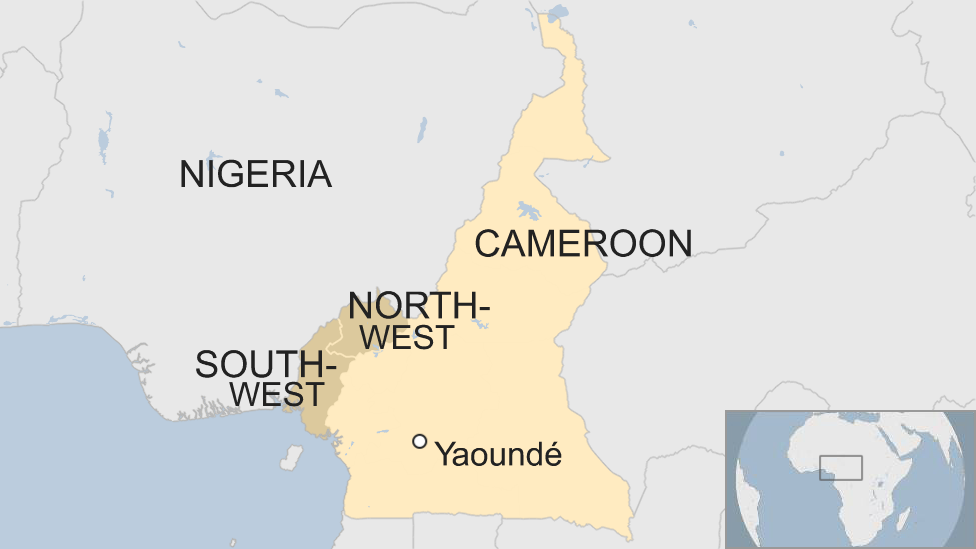
North-West and South-West are Cameroon's two English-speaking regions
He used this rare cabinet meeting to show his full backing for his ministers as they pursue this twin-track strategy - a firm stance on security in the troubled Anglophone region, but, at the same time, decentralisation, to give local people more control over their own affairs.
So, the so-called absent president had to show a firm hand while also preparing to loosen his grip.
- Published31 October 2017
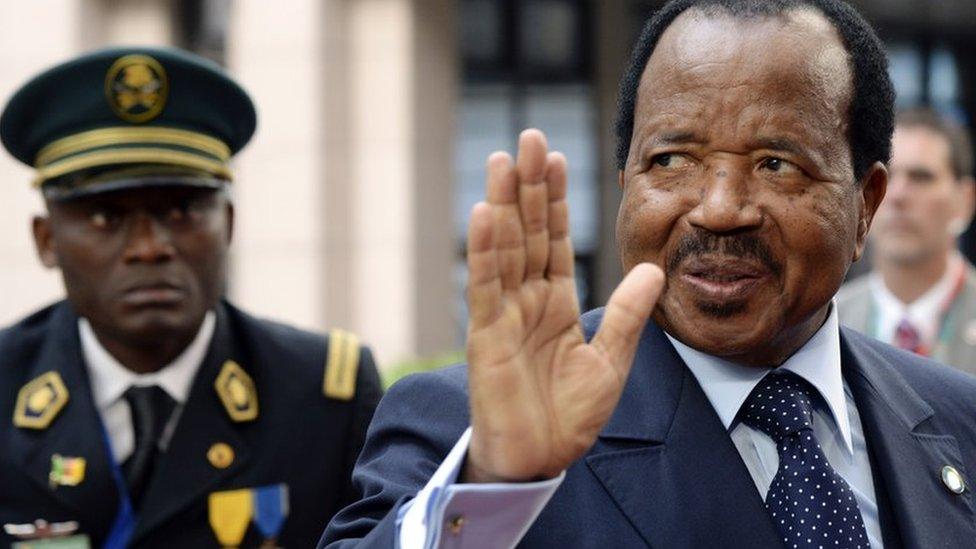
- Published2 October 2017
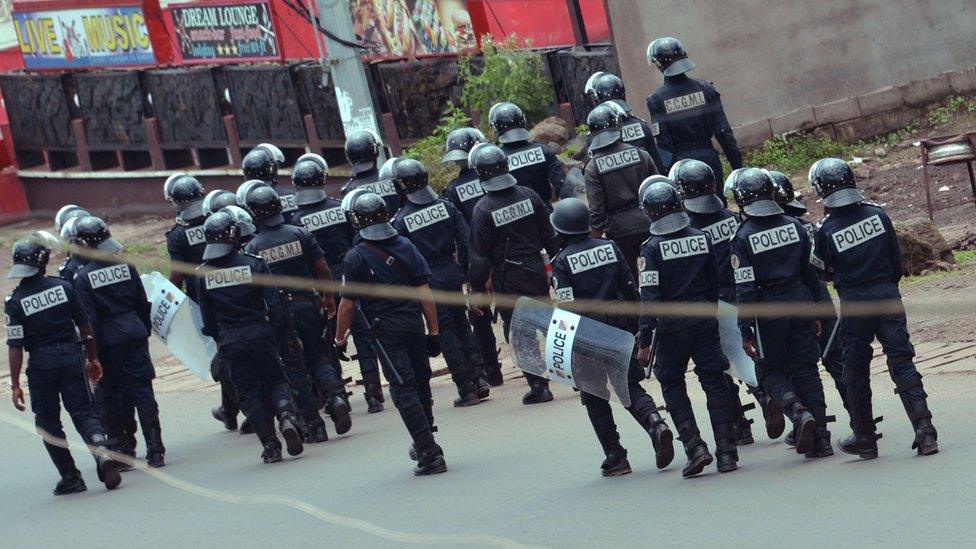
- Published9 March 2023
